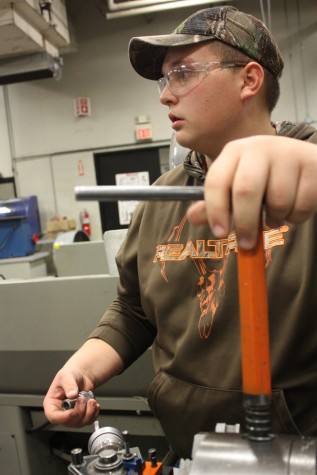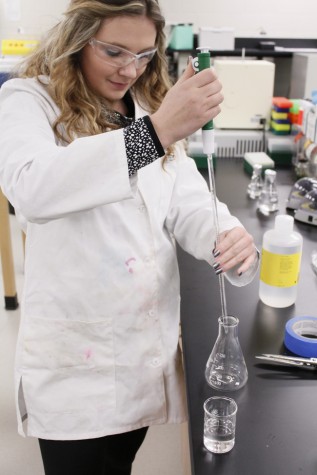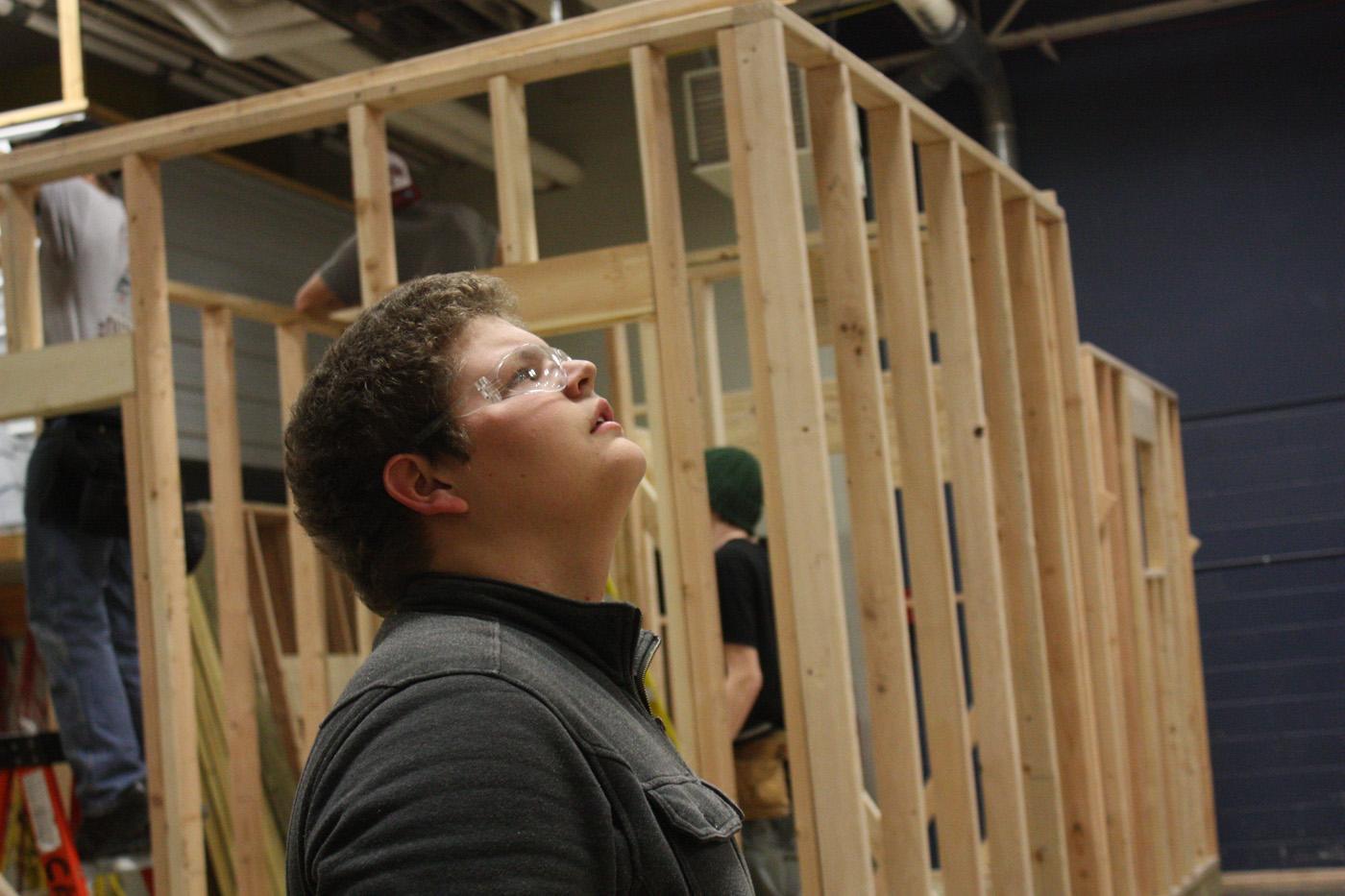Leaving career center, entering the job market
February 3, 2016
It is not uncommon to see students engaged in rebuilding engines, studying advanced electronics or building entire houses at the Capital Area Career Center (CACC) in Mason, Michigan. They are getting ready for what lies ahead and learning what skills they may need in their field of work. To make learning and teaching more effective, students are given half of their school day to attend the career center and learn more about their fields of interest. Doing this can help assure students may be more prepared and disciplined for the high tech job market.
There has been job growth related to a number of the available programs, too. Michigan’s Hot 50, a list of high-demand, high-wage jobs provided by the state’s Department of Technology, Management and Budget, reports the percent job growth for machinists is 16.6 percent for 2012-2022, veterinarians is 15.6 and architects is 17.1.
“I’m getting two years of practice, when, maybe, if people only take it at their school could only get it with a couple months of experience,” Zach Douglas, a junior attending the welding technologies program, said.

Senior Dean Wooden, a second year precision machining student, adjusts the 3 jaw chuck on a production lathe.
All of the experience students are able to gain in the career center, combined with the amount of time students can attend, helps create a professional environment.
“It almost is like a college in it’s own sense,” Lauren Hay, a junior attending the culinary arts and hospitality program, said. “You’re getting your career education in a school type format, but at the same time, it’s something you would learn in college.”
With all of the experience a student can gain while attending the career center, it is not hard to believe that most students will carry on the skills into college. Many of the students who attend the career center every day will actually admit that they attend the career center to gain more college credits. Some of the students plan on graduating, leaving the career center, and going to a college in the field that they had practiced during their time at the career center.
“It puts me up on a higher level,” Haleigh Kennedy, a junior attending the health occupations program, said. “I know the things we’re going to learn, so I think I could be ahead.”
Not everyone in the career center plans to attend college, though. Others plan to go straight to a job based off what they practiced in the career center. Some will attend the career center because they are able to gain more hands-on experience and see more from their career interests.
“I want to be an architect,” Autumn Shingledecker, a junior attending the construction technologies program, said. “I know a bit more about how the electricians, plumbers and carpenters have to work together to make everything fit.”
Some students are sent out to see what really happens in certain trades through field trips and job shadows.
“Employers come to the career center and ask for people from my class to go do job shadows because they know we have skills that other people coming out of high school don’t,” Katy Crabtree, a senior in the welding technologies program, said.
Students aren’t just learning the basic skills, though. They can learn from their mistakes and are able to see what habits they need to change in order to go further in the program.
“It has given me more discipline on how clean my work area is and how you need to use materials wisely

Pipetting TAE buffer into a flask, senior Kaylee Barker prepares the solution to create her molds for gel electrophoresis.
because it does cost money. You shouldn’t waste it for that reason,” Douglas said.
The program instructors pay attention to the students’ skills, habits and behaviors, too. They grade their students accordingly by how they act, what they accomplish in the program, and even by their overall cleanliness. The students go to the career center to learn about career opportunities, so it is best for the students to be in the class as they would be on the job.
“I like to say we teach life skills in here. They’re making themselves a more employable person in any field they get into,” Noel Garcia, instructor of the law enforcement program at the CACC, said. “All of the instructors and all of the programs here at the career center utilize what we call a ‘work habits.’ Every student is graded on certain areas that would be consistent to how they’re going to be evaluated in a work environment.”
Many students also agree that they are able to get ahead because of the career center. They are able to get more knowledge about what they want to do with their interests and improve the skills they will need in the workplace.
“I think I’ve learned more at the career center the last 2 years I’ve been there than I have the last 12 years I’ve been at this school,” Crabtree said. It’s not all about just learning what to do though; they need more experience than that. A vast majority of the students say that they are able to compare what they do in their program to what they would be interested in doing after graduation. They can learn information in the program and be able to tie it into their job interests.
“It gives me real world skills that I can use on the job site. It’s more hands-on,” said Crabtree. The hands-on experiences are actually what most students claim improves the learning environment, and it can also help students better understand what they are learning. Many students enjoy the one-on-one training they can be provided with too, and may eventually have the skills required to work independently. Using the experiences gained in class, students are able to walk out of the career center after graduation, better prepared for their field of work.

